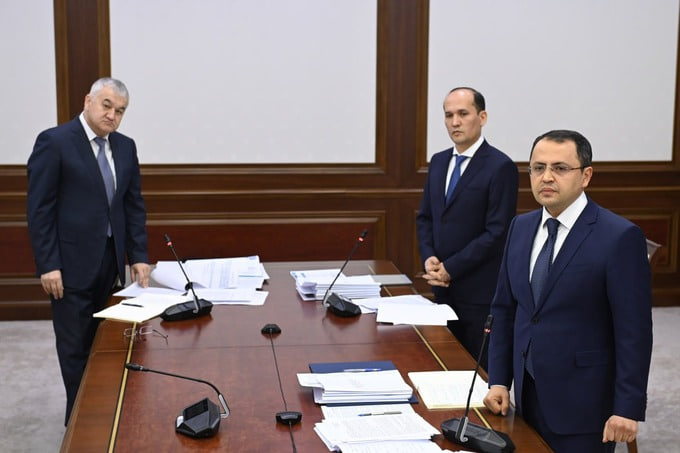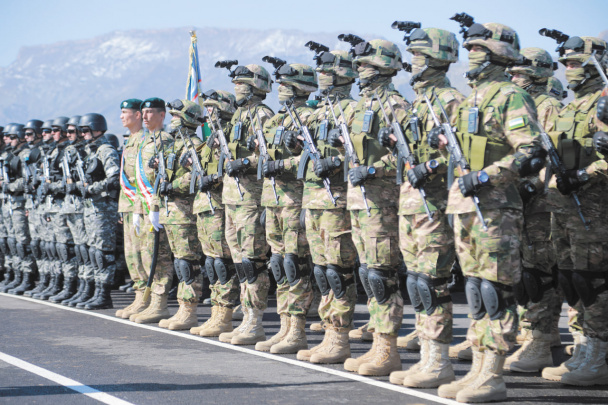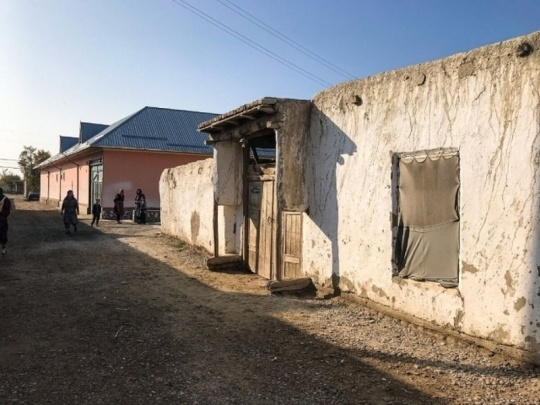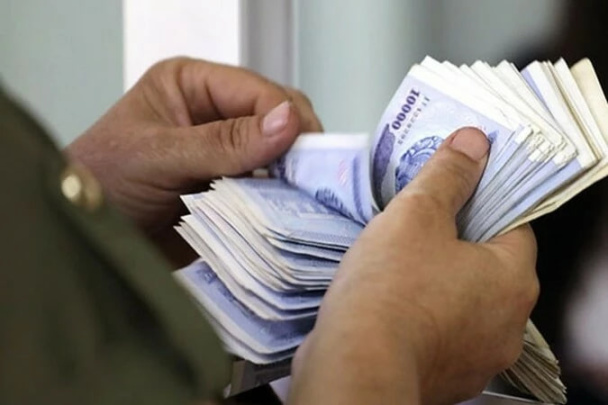Social workers to care for disabled children, enabling mothers to work and study
The President has been introduced to new social assistance measures aimed at supporting families in need. Families recognized as low-income will be added to a registry, streamlining access to aid without the need for additional documentation. One of the key proposals includes the establishment of a daytime care service for children with disabilities, allowing their mothers to work and pursue education.

Photo: Presidential Press Service
On January 28, President of Uzbekistan Shavkat Mirziyoyev reviewed a presentation on improving the targeting of social assistance and implementing a new system for caring for people with disabilities, according to the presidential press service.
This directive was given during a video conference held on December 13. Based on global experience and modern trends, a series of proposals have been developed, the statement said.
In particular, a regulation is being established whereby social assistance provided through the "Women's Register" and "Youth Register" initiatives will be granted to families included in the Poor Families Registry. Funds will be allocated proportionally to the population size, the number of people with disabilities, and low-income families in different districts and cities.
Recognition of a family as poor will serve as the basis for providing social assistance without requiring additional applications or documents from its members.
Furthermore, ineffective and redundant forms of social assistance will be eliminated, with a unified list of 28 types of social assistance being approved. Expenses for medical treatment and surgical operations, currently funded through social registers, will be covered by the State Health Insurance Fund.
Funds for infrastructure and social stability will be established under district and city administrations without forming separate legal entities. These funds will be directed toward addressing socio-economic, organizational, and infrastructural issues in the regions, promoting a healthy lifestyle, developing sports, and supporting environmental and nature conservation initiatives.
The President emphasized the importance of special care and attention for children with disabilities.
In this regard, it has been proposed to introduce a daytime care service for children with disabilities aged 3 to 18 based on public-private partnerships. Admission to these institutions will be granted under a social contract with parents and based on a conclusion from a psycho-medical-pedagogical commission. By the end of this year, the service is expected to cover around 2,000 children with severe disabilities, allowing their mothers to work and pursue education.
An information system called "Children’s Health" will be launched to track the diagnoses of every child with a disability. These children will receive comprehensive medical, rehabilitation, educational, and social services.
Care services will receive subsidies for each child, as well as preferential loans for procurement needs. Parental payments for daytime care services, up to 3 million UZS per month, will be exempt from taxes.
During the presentation, information was also provided on measures aimed at helping families overcome poverty.
This process is organized based on the principle of "seven opportunities and responsibilities." An information system called the "Register of Poor Families" has been launched to assess a family's socio-economic status, income, and assets.
As a result, 48,000 citizens have been employed, more than 10,000 have undergone professional training, and 14,000 have received loans and subsidies. Doctors have been assigned to 140,000 families, and 38,000 citizens have received social services. A total of 32,000 children have been enrolled in kindergartens, and nearly 7,000 young people have been prepared for university entrance exams.
The President approved the proposals and instructed authorities to consider the employment potential of families when managing the poor families registry, to place non-working individuals under state social protection, and to facilitate their social integration.
Recommended
List of streets and intersections being repaired in Tashkent published
SOCIETY | 19:12 / 16.05.2024
Uzbekistan's flag flies high on Oceania's tallest volcano
SOCIETY | 17:54 / 15.05.2024
New tariffs to be introduced in Tashkent public transport
SOCIETY | 14:55 / 05.05.2023
Onix and Tracker cars withdrawn from sale
BUSINESS | 10:20 / 05.05.2023
Latest news
-
Uzbekistan lowers electricity export project cost to Afghanistan by $30M
SOCIETY | 18:25
-
Seven citizens of Uzbekistan deported from the U.S. return home after diplomatic efforts
SOCIETY | 18:07
-
Developers to build new apartments with centralized heating and electric stoves
SOCIETY | 17:11
-
Authorities clarify which traffic violations result in penalty points under new system
SOCIETY | 17:10
Related News

16:57
Gov’t expands social protection for military personnel

21:14 / 12.02.2025
Gov’t introduces new support programs for vulnerable groups

12:43 / 07.02.2025
Real growth rate of population income reached 8.1% in 2024

15:14 / 01.02.2025



